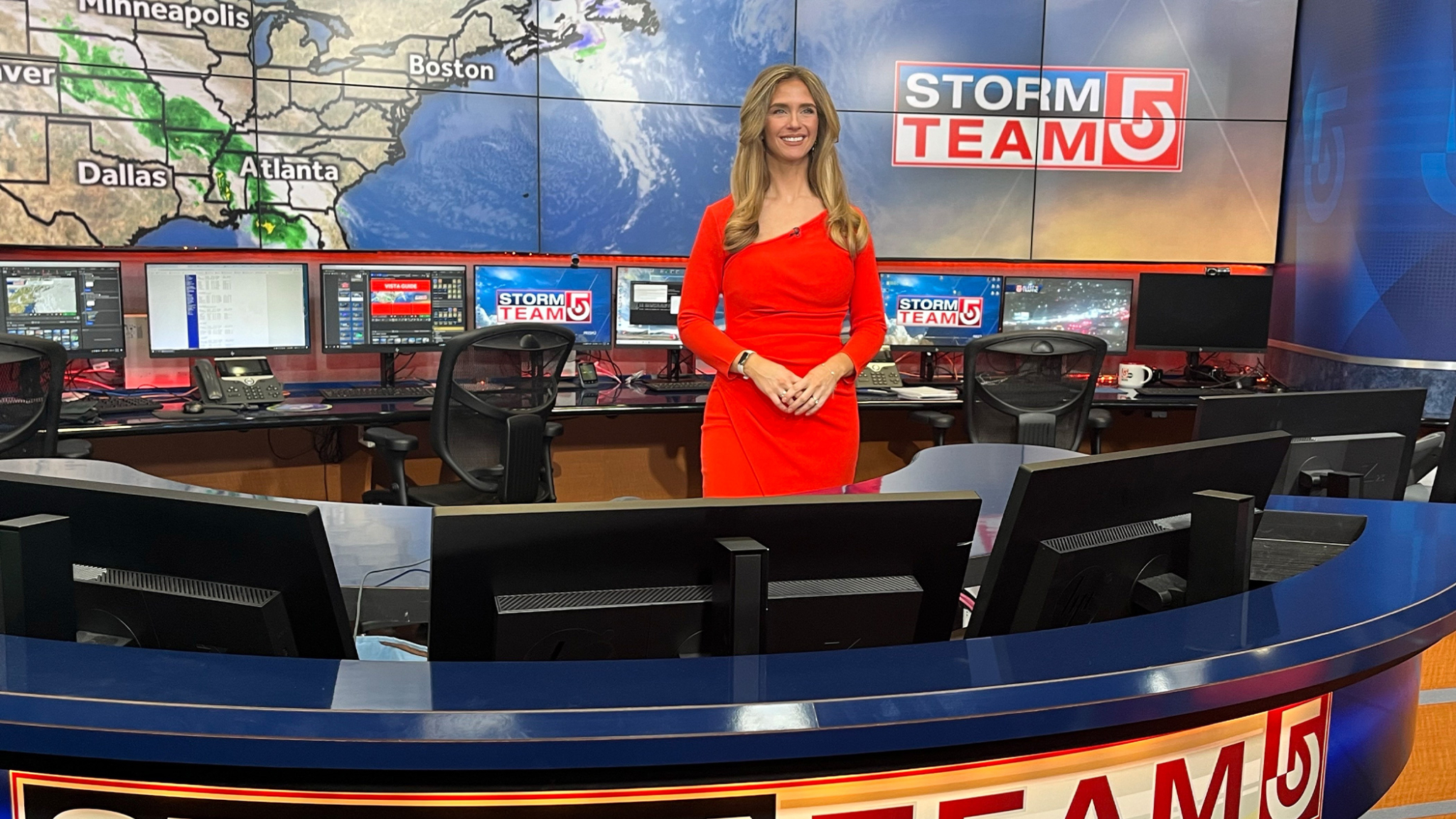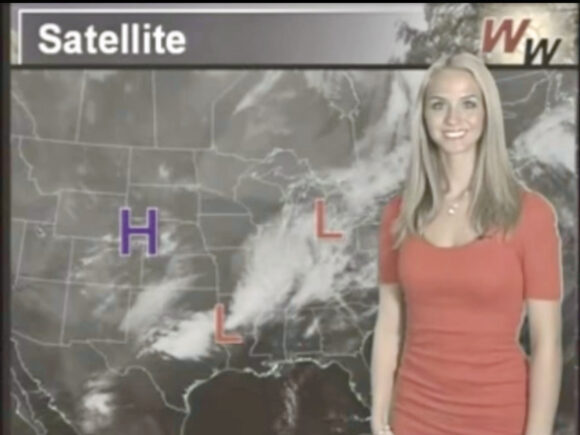
Meteorologist Kelly Ann Cicalese is a 2011 graduate of Rutgers-New Brunswick. Photo courtesy of Kelly Ann Cicalese.
When snow is in the forecast, SEBS alumna Kelly Ann Cicalese’s job as a meteorologist with WCVB’s StormTeam 5 in Boston is at its most challenging – and rewarding.
The Sewaren, N.J., native who first developed an interest in weather in grade school, found her way to a career as a weather forecaster at Rutgers University-New Brunswick. She started college as a math major, but after some guidance from her advisor, decided to apply her love of numbers and physics to a subject that she found most fascinating: meteorology. She graduated with a bachelor of science in the field in 2011.
Before Cicalese began forecasting for network TV news stations in West Virginia, Wyoming and Boston, she honed her skills as a member of the Rutgers Meteorology Club and RU-TV Weather Watcher Living-Learning Community. With Weather Watchers, she worked with her peers to produce daily weather forecasts and science journalism shows for the university’s television network.
We spoke with Cicalese about why she loves forecasting, the pressure that comes with predicting storms and why the mother of two sympathizes with parents when dangerous weather looms.
This is the time of year when people are checking the weather every day for snow. What is it like when all eyes are on you to get it right?
The pressure is definitely on in the winter. When you work in the Northeast and, in particular, New England, that’s the nature of the beast. People feel affected by snow and rightfully so. People go into a storm saying, ‘Oh meteorologists are always wrong. How do they still have jobs?’ We could be right and still be wrong in some way. I love snow, but by the end of winter, I do start to think to myself, ‘I’m ready for summer.’
Viewers see you on TV talking about daily temperatures and incoming hot or cold fronts. What’s your work like off-screen?
Weather is a 24-7 job. Even if I’m not on TV, I have to keep up with the weather. The models update several times a day, if I’m not following what the models were showing over the weekend, I don’t have a sense of the trends. Trends in weather are essential. If you don’t have that history to back it up, you don’t have as much information going into your forecast.
Do you worry when a dangerous weather event is coming that viewers may not heed your warnings?
When you become a parent, you learn that you would do anything to protect your children. I understand the urgency. When I see a tornado warning – and we had a pretty active summer with a lot of tornado warnings – my heart drops thinking of all these parents trying to keep their children safe. I keep that in mind when I’m on air and try to communicate the severity of the situation. I keep my terminology as simple and understandable as possible. The bottom line is in those situations, your message is essential. You can geek out with the radar and the images, but this is real life and a serious situation. I’m wearing two hats: I’m a meteorologist, but also a safety officer trying to direct as many people as possible to safety.

Before Kelly Ann Cicalese began forecasting for network TV news stations, she was a member of the Rutgers Meteorology Club and RU-TV Weather Watcher Living-Learning Community. Courtesy of Kelly Ann Cicalese
How did Rutgers prepare you for your career?
A lot of people get a broadcast meteorology degree. They have a great background in broadcasting and being on camera. But Rutgers was just a pure meteorology degree, and I’m so grateful to have graduated from Rutgers. I feel my education in meteorology made me a more well-versed broadcast meteorologist.
It was just a matter of getting the TV side. That brings me to Weather Watchers, which is a great program. Producing weather forecasts at Rutgers gave me that experience of public speaking and getting in front of a camera.
How has climate change and extreme weather affected your job?
It’s absolutely much more difficult. We’re seeing more frequent storms and more volatile conditions. That is creating more work for us as meteorologists. But, on the flip side, that also means people are more weather aware. Weather is affecting people’s lives more. People tune in for the forecast, but I’m hoping that there will be a shift towards also tuning in for a climate update. At my station, we have a whole initiative dedicated to bringing climate into our news casts.
Dr. Alan Robock [Distinguished Professor of climate science] told me as an undergraduate, “I think you should take a climate-based course,” and I’m so glad I did. It opened my eyes to something beyond just everyday forecasting. I feel having that background is really helpful because now as climate is penetrating our lives more, I’m more familiar with some of the terminology and topics referenced in climate research being done now.
What do you love most about your job?
There is something satisfying about forecasting a storm. There is a lot of nitty gritty that goes into nailing numbers. When it is on track, and it does follow what you’re forecasting, there is something so rewarding about that. If in some way you were able to keep people safe, there is nothing better than that.
This article first appeared in Rutgers Today.

